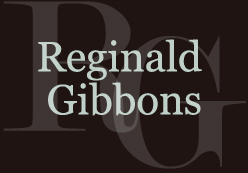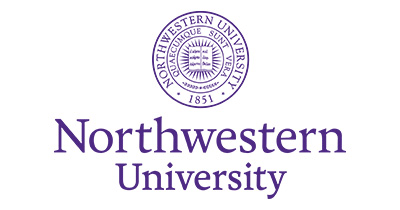Most of the time that I spend thinking about poetry, I do so in terms of specific aspects of how it works. This is usually called the art of poetry, but more often the phrase is taken to mean the craft, the techniques, of poetry. So, for example, for the last two months I have been trying to write an essay about poetry and the histories of words that words themselves preserve (simply because over time they often change more in meaning than in form; because of this the traces of their earlier meanings are still spelled—perhaps in both senses of that last word.)
How, then, might the definition of the “art” of poetry, in the higher sense, be expressed? This has been a topic of discussion since ancient times, and for some reason I too feel that before I say a few things about the “art of poetry” (meaning craft, but also meaning “way of thinking”), I am obliged to say something about the “art” of it in the higher sense.
Notorious, oversimplified philosophical disparagement (such as Plato’s) and privileging (such as Shelley’s or Heidegger’s) mark the opposite extremes of a continuum along which many have tried to be definitive. Wanting to be definitive is exactly what’s wrong with extreme positions, because the history of poetry is an ark carrying many different creatures, all of whom share the quality of being alive. Poetry is plural in nature. Yet I too want to define it.
We might say that the art (in the higher sense) and the vocation of the poet must go hand in hand—with poetic thinking and the strangely powerful and endless possibilities of language and poetry, on that one hand, and a sense of the purposes, powers, and uses of poetry, and of the social role of the poet, and of the poet’s experience and uses of creativity, on the other. Those may well be the most important things, but for a poet to begin with them in practice would be like a composer exploring what music is before even learning how to play an instrument or sing, and only then composing something. No, it’s the practice that leads the theory, just as rhyme can at least sometimes lead the thought. And I don’t see the practice of art, and the vocation of artist, as having any essential relation with mysticism or religious belief of any kind, or special access to other sorts of truth, or election to special status, even though all of these are uses that poetry and poets have served.
Whatever poetry’s social function, now or in the past, in the English language or any other, I see the practice of poetry as an experience of spirit (however we define that) in the individual—not essentially for the sake of enlightenment or peace or heaven or authority, but for the sake of being fully alive in one’s inner life, and alive to one’s inner life, and especially alive in and to language. Others see poetry as the manifestation of something ineffable and even incommunicable—as a crude form of communication that happens to be necessary in order to convey that ineffable something else to others or in order to offer up a worshipful homage (as in the work of Rumi, the poet who is, I have heard, the most popular in America). The ineffable something is a particular and particularly exalted state of mind (in Rumi’s case mystical, ecstatic, monotheist). Such respect for, and interest in, the inexpressible is found in the ancient world, too—for instance in the Greek essay “On the Sublime” (author unknown) that was much later to have such an important role in the Romantic movement of England and Germany, and then in later poetry of Europe and America, and eventually nearly everywhere. Seeking to articulate the inexpressible also goes back to the ideas of Neo-Platonists devoted to apprehending what they believed cannot be apprehended, beginning with the nature of the Christian God. Some traditions emphasize visionary experience; others emphasize that but also language—the uncanny seeing power of words themselves. In these latter cases, too, the impulse of the art of poetry is primarily worshipful. (Poetry can be worshipful in some secular sense, too, so the list of the worshipful includes a range like this: Nerval, Dickinson, Rimbaud, Whitman, Rilke, Eliot, Celan, Bunting, Césaire, Darwish, and multitudes more.)
The very practice of poetry, because its original materials are our everyday speaking and reading and writing, makes possible precious kinds of thinking beyond the everyday; unusual access to the truth of lived experience, at least–our own and that of others; and to what cannot be experience but only imagined; and great pleasure in the use of those poetic materials. (They are breath and the body that shapes breath; thus even the complex expressive instrument that is language-and-body—that is, poetic rhythm; words themselves and endlessly various and fascinating syntax; the ear and mind that hear language as if it were music as well as thought; and–for us, in our world–the medium of printed language, whether on the page or an electronic screen).
And poetry is a vocation because like all crafts it has the capacity, itself, to reward the maker; and the maker enters the craft because in some sense “called” (even if, in psychoanalytic terms, this is a call from one part of the self to another). This kind of reward (the word derives ultimately from prehistoric Indo-European wer-4, to perceive, watch out for, thus to guard, thus that which is guarded) is not material. The practice of the craft (the art) rewards the maker. Of course poets of the ancient steppes, of old Ireland, of the Zulu kingdom, and perhaps nearly everywhere (pre- and post-industrial), may want, need, and even deserve reward; the ancient bargain between chieftains and poets is the exchange of material reward for the poet, and immaterial and long-lasting fame for the chieftain. Some modern and contemporary poets, too, have received substantial material rewards and themselves enjoy high regard, but their strictly poetical power to confer undying fame has entirely evaporated—replaced by the potency of clever advertising, which can produce immense dying fame or notoriety.
Although I know no way to refute the reality of this immaterial reward, anyone who may envy me and others for holding the lucky job of being a teacher at a school that prizes arts and humanities may doubt my praise of poetry as an art apart from material reward, for I can be accused by some of merely congratulating myself and trying to divert attention from my own material reward: my job. I am indeed materially rewarded, and apparently it’s at least in part for my poems, although I can achieve no fame for anyone, even fleetingly, including myself. My material reward has much less to do with poetry than with the advantages, at least for some, of living in one of the parts of the world that is wealthy, and the luck of being able to make a place near the stream of that wealth in which to dip a cup.
But poetry itself is not diminished by the asymmetries of wealth and suffering in the world. And the non-material reward of creating a work—of words or wood, watercolors or wool—partakes of something like Mihaly Csikszentmihalyi’s famous “flow,” and at best, of the experience of virtuosity (of craft and of feeling) and of the capacity for occasionally being able to write up to, or at least near, one’s hope of discovery. “You know what it’s like,” a pianist once said to me, “when you’re playing and somehow you reach that state where the piece is playing itself, and you don’t even have to think any more about what you yourself are actually doing?” No, when I’m at the piano, I don’t know that feeling. But I have had it with a pencil in my hand. (My two favorite instruments of human music are the massive, incomparable, bourgeois grand piano, and the humble, extraordinary, nearly weightless pencil. Once I met a poet who saw me with a yellow pencil behind my ear and said with some disappointment that I was looking like a carpenter—it took me a moment to realize that I was proud of this.) And no matter what one is lucky or unlucky to be doing as a way of making a living, the idea of poetry as an element in a “gift economy,” rather than of a money economy, is venerable and worthy of veneration, and it preserves something beautifully gratuitous about all art—even in our Whole World Whirlwind that spins the elemental and the high-technological, the poor and the rich, horror and love, in the same moving spiral.
Now onward toward the how rather than the what and the why.

